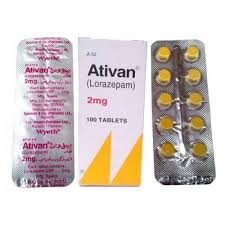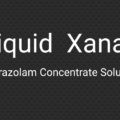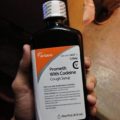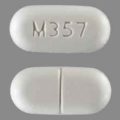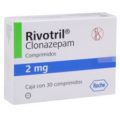What is Ativan ?
Ativan is a highly addictive prescription drug containing lorazepam, a high-potency intermediate-acting benzodiazepine. It was initially patented in 1963 by Wyeth Pharmaceuticals and went on sale in the United States in 1977 under the brand names Ativan and Temesta.
Ativan has anxiolytic, hypnotic, amnesic, anticonvulsant, sedative and muscle relaxant properties. Its high relative potency makes 1 mg of ativan equal in effect to diazepam 10 mg. Taking high doses of Ativan for an extended period of time can lead to physical and psychological dependence.
What is Ativan Used for ?
Ativan is used to treat conditions such as anxiety disorders, insomnia, active seizures including status epilepticus, chemotherapy induced nausea and vomiting, alcohol withdrawal, severe agitation, as well as for surgery to interfere with memory formation and to sedate those who are being mechanically ventilated. Ativan it is also used in rehab and emergency medicine in combination with other therapy for acute coronary syndrome due to cocaine use.
Ativan Dosage
Due to the addictive nature of the drug, is highly advised that Ativan dosage as prescribed by your doctor be strictly adhered to in order to prevent dependence and addiction. Ativan is available in 0.5 mg, 1 mg, and 2 mg tablets administered orally. The dosage of ativan is usually 2 to 6 mg/day given in divided doses, with the highest dose being taken before bedtime, but the daily dosage may vary from 1 to 10 mg/day depending on the condition and age of the patient. In order to avoid the adverse effects of ativan, it is important to note that the dosage of Ativan can be increased gradually, beginning with the evening dose before the daytime doses of ativan.
Is Ativan and Xanax the same thing ?
Although both are benzodiazepines, Ativan contains lorazepam, while Xanax on the other hand contains Alprazolam. Ativan is used for management of anxiety disorders, short-term usually less than 4 months duration, relief of anxiety symptoms, anxiety associated with depressive symptoms, or anxiety/stress-associated insomnia. Xanax is used principally for the management of panic disorder. Ativan is therefore not generic for Xanax as both drugs are not the same
What are the Side Effects of Ativan ?
The effect of Ativan helps balance chemicals in the brain that can cause anxiety. Overdose of Ativan produces a fleeting, intense euphoric high known as ativan high, followed by a prolonged state of calm due to relaxation of muscles. Signs of an Ativan overdose can include: mental confusion, slurred speech, lack of energy, loss of control of body movements, muscle weakness, low blood pressure, slow breathing and coma. Get emergency medical help if you have signs of an allergic reaction to Ativan: hives; difficulty breathing; swelling of your face, lips, tongue, or throat.
Call your doctor at once if you have:
- severe drowsiness;
- thoughts of suicide or hurting yourself;
- unusual changes in mood or behavior;
- confusion, aggression, hallucinations;
- worsened sleep problems;
- sudden restless feeling or excitement;
- muscle weakness, drooping eyelids, trouble swallowing;
- vision changes; or
- upper stomach pain, dark urine, jaundice (yellowing of the skin or eyes).
Common Ativan side effects may include:
- dizziness, drowsiness;
- weakness;
- slurred speech, lack of balance or coordination;
- memory problems; or
- feeling unsteady.
Ativan Drug Interaction
Tell your doctor about all your current medicines and any you start or stop using because taking Ativan with other drugs can cause dangerous side effects or death. Ask your doctor before taking Ativan with a sleeping pill, narcotic pain medicine, prescription cough medicine, a muscle relaxer, or medicine for anxiety, depression or seizures. Provide information on
- any other medicines to treat anxiety;
- probenecid;
- aminophylline or theophylline;
- an antidepressant, or medicine to treat mental illness;
- a barbiturate such as phenobarbital;
- narcotic pain medicine;
- seizure medicine; or
- medicine that contains an antihistamine (such as sleep medicine, cold or allergy medicine).
Ativan Abuse Signs
Ativan is a high risk addiction-forming drug. You are unlikely to develop an addiction to ativan if you strictly follow your doctor’s prescription even though it is still possible that a person with a legitimate prescription of Ativan will develop what clinicians call a sedative use disorder. Some Ativan abusers use the drug without ever having a legitimate prescription for it, fueling a prescription drug epidemic that has already peaked. Ativan addicts are good at concealing their habits this explains why many do not get help until it is too late. The likely signs of Ativan abuse include:
Tremors
Loss of appetite
Sweating
Headaches
Confusion
Hallucinations
Dizziness
Nausea and vomiting
CLICK HERE TO DOWNLOAD How to Overcome Addiction PDF
Public Health Nigeria an Interdisciplinary public health movement focused on health education, advancing fair public health policies, promoting fitness, healthy diets, responsible behavior, community health and general well-being.

